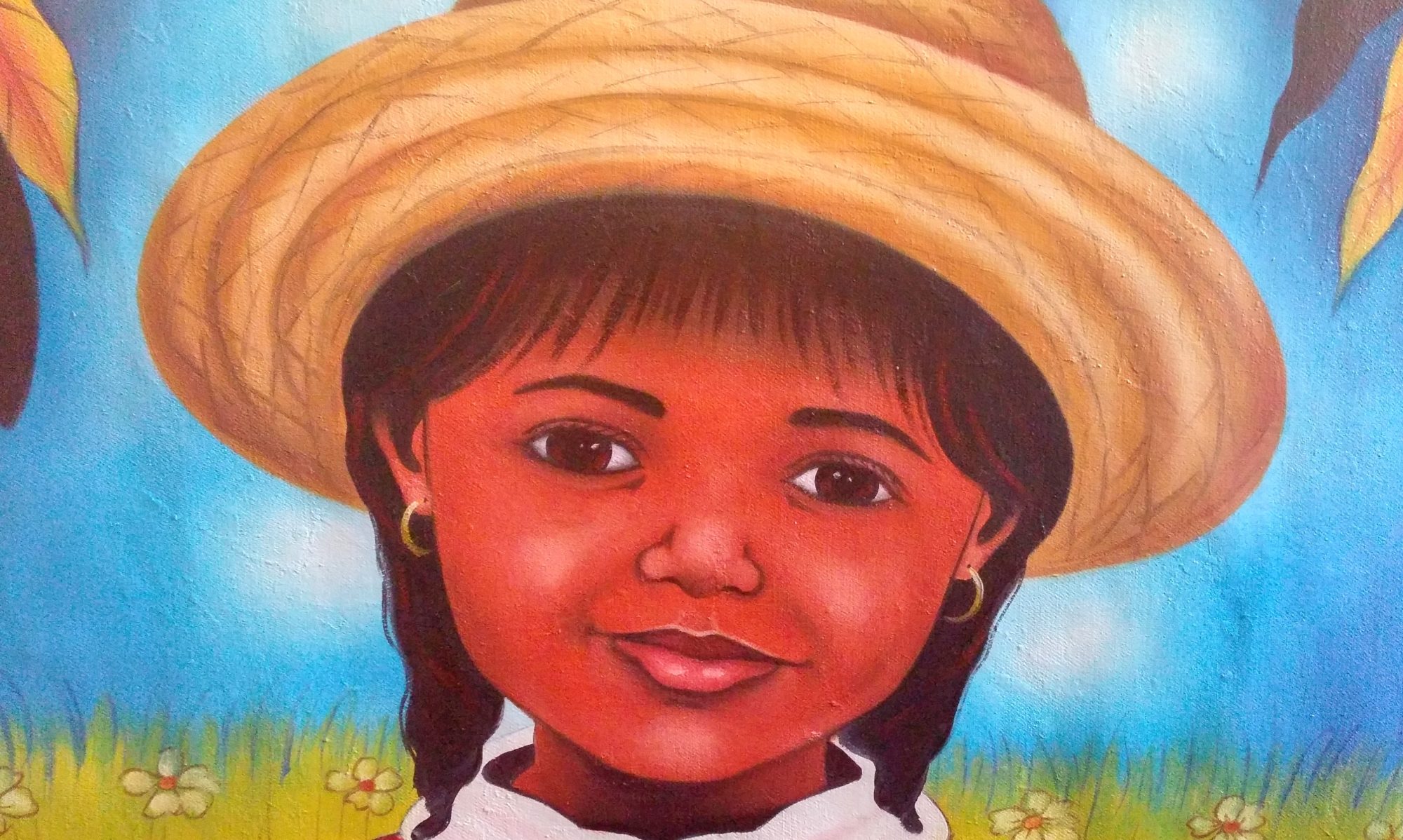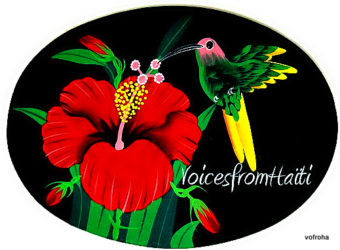Which part of Haiti do you call home?
 I was born in Port-Au-Prince. Both of my parents came from Leogane. Although I left a long time ago, Haiti will always be home. My roots are there. It is there that I took my first step. It is where I first said “I love you,” and understood what that meant. Haiti gave and continues to give me courage. It taught me to respect and treat everyone that comes into my life with dignity. I think about Haiti every day. I have nostalgie for the people, the music, the sun, the colors, Rond Point, Champs de Mars, Bicentenaire: those places may have changed significantly; some may no longer exist. In my own heart, however, they will always be there. No matter where I go in the world, Haiti will always be home.
I was born in Port-Au-Prince. Both of my parents came from Leogane. Although I left a long time ago, Haiti will always be home. My roots are there. It is there that I took my first step. It is where I first said “I love you,” and understood what that meant. Haiti gave and continues to give me courage. It taught me to respect and treat everyone that comes into my life with dignity. I think about Haiti every day. I have nostalgie for the people, the music, the sun, the colors, Rond Point, Champs de Mars, Bicentenaire: those places may have changed significantly; some may no longer exist. In my own heart, however, they will always be there. No matter where I go in the world, Haiti will always be home.
When did you leave home?
When I left, I was 12 years old. It was commonplace for parents of certain means to send their children abroad to study. In my case, I was sent to France.
How many siblings do you have?
We were six total: four brothers, my sister, and myself. Two older brothers died: one of lung cancer; the other was killed in Haiti last year—on Father’s day.
Understandably, discussing her brothers’ deaths in detail was not something Elle wanted to do. We moved on. However, it is not difficult to tell how too many losses have cast both light and shadow on the woman Elle Philippe continues to become.
How would you characterize your childhood?
The best memory I have of my childhood is visiting my grandparents at the family farm in Leogane. I remember waking up early in the morning. During mango season, my cousins and I would compete to see who could find the most mangoes. We would display them proudly and then share them with the farmers’ children. We had no electronics, no cell phones, but we enjoyed ourselves thoroughly. We were carefree. We swam in the beautiful river, laughing, singing, and playing as free as birds.
Those were amazing times. Even now, thinking about them brings me complete pleasure. I have visited numerous places all over the world—for business and vacation. No other place brings me the happiness I find back home.
I had a happy childhood in Haiti with my family, although the grownups might have been a little too overprotective—especially my father. He was private and conservative to the extreme. I was not permitted to go anywhere without my brothers. I could not even visit a family friend’s house, unless I was accompanied by a member of my own family. For this reason, my brothers and I were almost always together.
What is the worst childhood memory?
The worst part of my childhood came when I was 10 years old. My favorite aunt had been ill for some time. Watching someone you love die right before your eyes does something to you. The memory has always stayed with me. Witnessing her death was quite painful. It hurts as much today as it did then.
Losing my father too early in life was also very devastating. However, that type of heartbreak only makes you stronger. Adversity teaches unavoidable lessons that one must learn. Adversity makes you a better and stronger human being. It helped me to see life from a much different perspective. I take nothing for granted.
What advice would you give to a parent raising children in Haiti today?
First of all, I truly have to say that the birth of my daughter was the most significant event of my own life. That moment remains the most valuable of my entire existence. Because I have her in my life, I am just over the moon with joy. She is my other half, my heartbeat. Because of her, I have the most important title: Mother. Once a mother, always a mother! No one can take away from me.
Being a parent is the hardest job, no matter where you live. Raising a family in Haiti is very complex, especially after the earthquake. Issues of insecurity, uncertainty, education, work, make for a difficult existence. Raising kids is a tremendous task, that’s undeniable. But to the ones raising our new generations in Haiti I say: Always remember who you are. Remember where you came from; pay attention to the direction you are moving towards. Haiti is rich in culture—its own culture. Try not to focus too much on other people’s cultures. Continue to cultivate your own—our own. The culture that belongs to us is precious. Haitian culture is our identity. It is our moral obligation to preserve it.
Also, the biggest treasure a parent can give a child is education. And education, as they say, starts at home. My father always said to me: “Being a student is the only job you have. One day, you will find that people envy you for your intellect. Your mind belongs to only you. No one can take what you have mastered away from you.”
Parents need to teach their children that everything in life has consequences good or bad. Education is not just about going to school to earn a degree. Once you do get that degree, it’s not about shouting “I’m done with what people, including my parents, expected me do.” No. Education is more meaningful than that. In Haiti, the majority of the population never went to school, yet you see parents—specially mothers—working extremely hard to find possibilities to send their children to school. The opportunity may not be available, but we as Haitian do believe in education.
For most countries, education is a priority. It should not be a luxury. It is the right of every citizen to receive an education. It is the government’s obligation and responsibility to educate the people
When did you decide to become a chef?
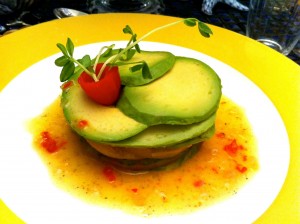 I always wanted to become a Chef. I had the most awesome experience with food as a child. Meals were always fresh and aromatic and beautiful and colorful. I knew someday I would work in that field. Cooking has always been my passion. Every dish that I create comes straight from Haiti, in a sense. I enjoy having people gather around the dining table. It pleases me when they enjoy good food, fresh food. I am fascinated with the sound forks and knives make on a plate; I love the laughter that goes on at the dining table. I love the conversations. This is what living is about. I consider myself very fortunate to be able to do what I do.
I always wanted to become a Chef. I had the most awesome experience with food as a child. Meals were always fresh and aromatic and beautiful and colorful. I knew someday I would work in that field. Cooking has always been my passion. Every dish that I create comes straight from Haiti, in a sense. I enjoy having people gather around the dining table. It pleases me when they enjoy good food, fresh food. I am fascinated with the sound forks and knives make on a plate; I love the laughter that goes on at the dining table. I love the conversations. This is what living is about. I consider myself very fortunate to be able to do what I do.
After working for 11 years as a private Chef, specializing in French, Italian, and Haitian Nouvelle Cuisine, I started Chez Elle. It is a private dining and special events business based in New York City. People come to Chez Elle to have dinner, to celebrate Baby and Bridal showers; they have tea parties in this intimate and luxurious setting. They dine with their relatives and friends. When I am commissioned to do a party, I see to it that it is a special event. Naturally, that special event starts with ingredients that come straight from the farm. Yes, from the farm to your plate. It’s my tradition. My culture.
Every meal is inspired by the place I loved as a child—the farm. I live far away from that farm now, but I am in this profession for the long stretch. I will continue to create. I look forward to teaching the art of cooking—particularly to young adults who are passionate and determined to master our culinary traditions.
Do you recall where you were and what you were doing when the massive earthquake of January 12, 2010 struck?
A friend called to ask where I was. Puzzled, I asked her why. She didn’t answer. I told her I was about to pick up my daughter from school. She said: “Whenever you reach home, turn on CNN.” As soon as I reached home, she called again. She wanted to make sure I had seen what was going on. On the news, all I saw was smoke. There was smoke everywhere. I thought my country was gone; the city of my birth had disappeared. I thought I was in the middle of a nightmare. There were no words. I was staring at the TV screen, trying to convince myself that everything would turn out fine. I knew things would not be fine at all.
I was convinced that my country was gone. I thought my people were gone: brothers, sisters, mothers, aunts, cousins, children’s fathers. Everyone was gone. I knew all of Haiti was crying and in desperate need of help. I got in touch with my own loved-ones after four sleepless nights. Minutes had become days, and hours were like eternity. Luckily, everyone was OK.
I watched as the world came and responded with compassion for Haiti and its people. In the end, time will tell how well or poorly things turn out. Still, I believe and know that one day we WILL have a Haiti that every Haitian can be proud of.
Haiti today is in the “rebuilding” phase. Share with you some thoughts.
As for rebuilding, there’s a quote from Bill Gates in which I truly believe and to which I refer all the time: “Great organizations demand a high level of commitment from the people involved.” That said, reconstruction must begin within ourselves. In order to educate and make a difference in someone else’s life, we have to make an effort to change ourselves first. I am very grateful and blessed to have this precious gift of life. I take nothing for granted. I make it a priority to help whenever I can, especially when it comes to the education of children in Haiti. Nothing is more important.
Share with us the one wish you have for Haiti
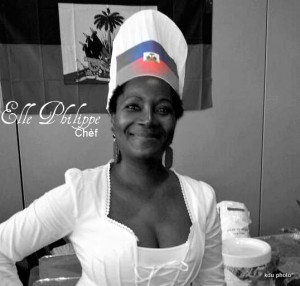 My wish is for everyone to just get involved. It is important to teach our children to contribute to society, their community—without expecting anything in return. That is easier said than done. My wish is that we can truly commit to do all we can to make things better. Let us do all we can to inspire one another. Let’s make a difference in one another’s lives. We can do this one brick at a time.
My wish is for everyone to just get involved. It is important to teach our children to contribute to society, their community—without expecting anything in return. That is easier said than done. My wish is that we can truly commit to do all we can to make things better. Let us do all we can to inspire one another. Let’s make a difference in one another’s lives. We can do this one brick at a time.
Thank you, Elle Philippe, for adding your voice to VoicesfromHaiti.com.
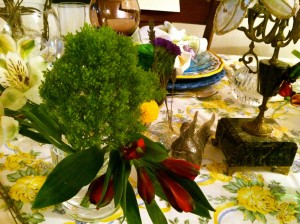 If you, yes, YOU–out there–on the WWWeb! If you would like to experience a fine dining experience at Chez Elle, visit her on the web or on her Facebook page. Don’t be left out of Chez Elle. You’ve got to experience Chez Elle!
If you, yes, YOU–out there–on the WWWeb! If you would like to experience a fine dining experience at Chez Elle, visit her on the web or on her Facebook page. Don’t be left out of Chez Elle. You’ve got to experience Chez Elle!
Bon appetit, mes amis.
